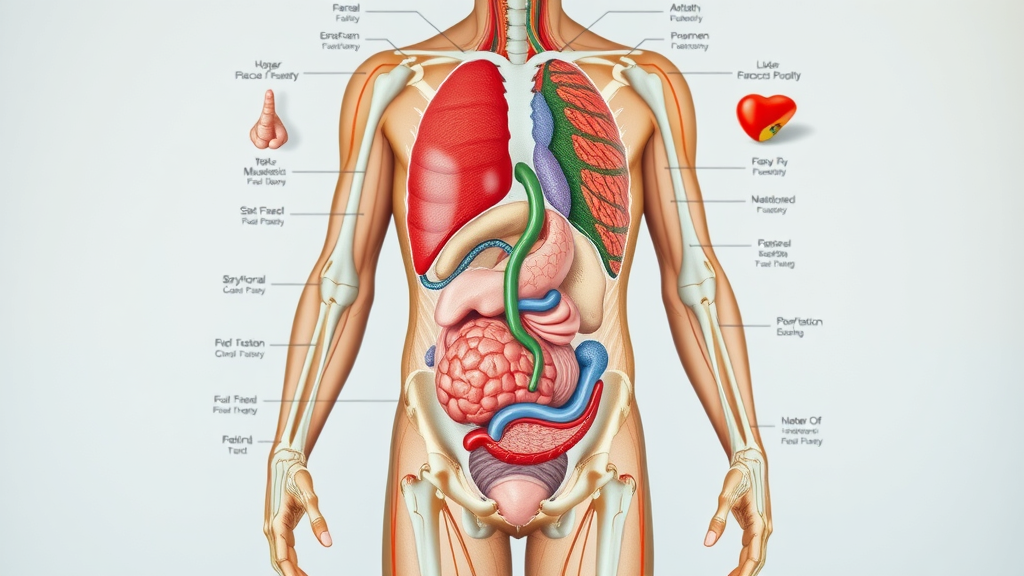Could a simple 72 hour fast unlock breakthrough weight loss and health benefits? Uncover the science and practical applications of an extended fasting period in this comprehensive guide. Whether you're intrigued by the potential for significant weight loss or exploring intermittent fasting, here’s everything you need to know.
What You'll Learn
- The science and statistics behind the 72 hour fast
- Safety considerations and health benefits
- The impact on gut health
- Real life weight loss stories
- FAQs and expert opinions
The Science and Statistics Behind the 72 Hour Fast
Understanding Intermittent Fasting
Intermittent fasting involves cycling between eating and fasting periods. This strategy leverages the body's natural rhythms to induce ketone bodies production, resulting in burning fat for energy. It significantly differs from continuous calorie restriction, focusing more on eating pattern adjustment rather than reducing food intake alone. Statistics indicate that this approach can enhance insulin sensitivity and promote mental clarity, making it a popular choice for achieving weight loss results.
The Physiology of Fasting: What Happens in 72 Hours?
During a 72 hour fast, the body undergoes significant metabolic shifts to preserve energy. Initially, glycogen stores deplete, prompting the liver to produce ketone bodies as an alternative energy source, especially for the brain tissue. By the hour mark of seventy-two, insulin levels decrease, and the body increases muscle mass preservation by utilizing fat stores more efficiently. This shift prompts numerous potential health benefits and contributes to metabolic rate improvement.

What is the 72 Hour Fast and How Does It Work?
Breaking Down the 72 Hour Fast Method
The 72 hour fast, also known as a water fast, involves abstaining from all food and caloric beverages for three full days. Adequate hydration is critical during this period to maintain body functions and prevent dehydration. This method aims primarily at resetting energy homeostasis and detoxifying the body, leveraging the body's natural capacity to switch from glucose to fat utilization.
Key Benefits of the 72 Hour Fast for Weight Loss
The weight loss benefits of a 72 hour fast result from the significant reduction in caloric intake and enhanced fat oxidation. The process also initiates pathways for autophagy, which helps clear cellular debris, potentially contributing to longevity and cellular rejuvenation. Additionally, reducing blood sugar levels can further support weight management goals.

Safety Considerations for a Water Fast
While the 72 hour fast boasts numerous health benefits, safety must remain a priority. It is crucial to undertake such fasting under medical supervision, especially for individuals with pre-existing medical conditions. Monitoring for symptoms like dizziness, fatigue, or more severe complications ensures a safe fasting experience and maximizes the benefits of fasting.
Personalized Weight Loss Results with a 72 Hour Fast
Factors Influencing Weight Loss Success
Several factors, including body composition, metabolic rate, and previous dietary patterns, influence the rate and extent of weight loss achieved through a 72 hour fast. Individuals with higher initial body fat percentages may experience more pronounced losses, while those with less fat might notice differences in muscle mass preservation and increased energy levels.

Real Stories: Weight Loss Journeys
Many who have completed a 72 hour fast report experiencing transformational changes, not just physically but mentally. Stories abound of individuals achieving weight loss milestones, discovering renewed focus, and enhancing their overall well-being. These personal testimonials underscore the potential benefits and challenges of fasting extended periods.

Does a 72 Hour Fast Reset Your Gut?
The Biological Impact on Gut Health During a Fast
A 72 hour fast can significantly impact gut microbiota composition, enhancing the diversity of beneficial bacteria like Lactobacillus and Bifidobacterium. This change supports improved digestion and gut health. Moreover, the reduction in food intake gives the gut lining ample opportunity to regenerate, promoting intestinal integrity.
Benefits and Limitations
While fasting can provide a temporary reset to gut health, it's not a universal cure. Extended fasts may not suit everyone, especially those with specific medical conditions. Understanding individual body responses ensures balanced and informed dietary choices.

How Fast Can I Lose 20 lbs with Intermittent Fasting?
Timeline and Strategies for Effective Weight Loss
To shed 20 lbs with intermittent fasting, a strategic approach, considering calorie intake and expenditure balance, is essential. Fasting periods, such as 16/8 or 5:2 methods, can significantly influence results. Achieving sustainable weight loss requires consistent adherence to fasting schedules and periodic evaluation of progress.

Intermittent Fasting vs. Other Diets
Compared to traditional diets, intermittent fasting offers unique advantages like improved insulin sensitivity, enhanced metabolic processing, and greater dietary flexibility. It shifts focus from continuous caloric restriction to a manageable eating pattern, aligning with lifestyle preferences and improving mental clarity.
What Happens to Your Body After 72 Hours of Not Eating?
The Physical and Mental Effects of Extended Fasting
After 72 hours without eating, the body achieves ketosis, continuing fat-utilization and sparing muscle mass. This induces more steady energy release, reducing blood sugar swings and potentially enhancing brain function. Users often report increased mental clarity and tranquility, enriching both physical and psychological health experiences.
Safe Fasting Practices
Embracing safe fasting practices encompasses knowing personal limits and understanding bodily responses. Gradual acclimatization to fasting, adequate hydration, and careful monitoring of vitamin levels contribute to achieving fasting goals without compromising safety.
How Much Weight Can I Lose in 72 Days as a Female?
Setting Realistic Weight Loss Goals
For females aiming to lose significant weight over 72 days, setting realistic goals is crucial. Aiming for 1-2 lbs of weight loss per week is safe and sustainable. It accounts for differences in metabolic rates, hormonal balances, and lifestyle choices, promoting healthy weight management practices.
Tracking Progress and Adaptations
Tracking progress through means such as journaling, using apps, or engaging support groups can aid in staying motivated. Adapting to bodily reactions, whether it be changes in energy levels or dietary preferences, ensures a tailored and effective weight loss journey.
Frequently Asked Questions About 72 Hour Fast
Is a 72 Hour Fast Right for Everyone?
While the 72 hour fast offers various health benefits, it's not suitable for everyone. Those with medical conditions, pregnancy, or underweight individuals should avoid longer fasts. Consultation with healthcare professionals is advisable for personalized guidance and safe fasting practices.
Who Should Avoid Long-term Fasting?
Individuals with underlying health issues such as diabetes, eating disorders, or cardiovascular concerns should refrain from long-term fasting. Any undertaking of fasting should be done with caution and comprehensive health evaluation to avoid complications.
Conclusion on 72 Hour Fast Weight Loss Results
The 72 hour fast, when approached correctly, can serve as a powerful tool for health innovation, weight management, and mental revitalization.
Additional Resources and Support for Fasting
| Method | Benefits | Challenges |
|---|---|---|
| 72 Hour Fast | Accelerated fat burning, Autophagy activation | Potential nutrient deficiency risks, Requires supervision |
| Intermittent Fasting | Improved insulin sensitivity, Dietary flexibility | Patience required for effects, Initial adjustment times |
"The key to successful fasting lies in preparation and understanding of individual body response." - Dr. Jane Doe, Nutritionist
- Stay hydrated and listen to your body's needs
- Prepare mentally and physically beforehand
- Break the fast gently with nutritious foods
Tips for a Successful 72 Hour Fast
- Ignoring hydration and sleeping patterns
- Overexerting during fasting periods
- Breaking a fast with excessive or unhealthy foods
Common Mistakes to Avoid During a Fast
- Start with easily digestible foods like bone broth
- Gradually introduce solids like soft-cooked vegetables and lean proteins
- Avoid processed foods initially to sustain benefits
Recipes and Meal Plans for Post-Fast
"Adopting fasting into my routine has not only transformed my health but enriched my life." - John Smith, Fasting Practitioner
Explore fasting as a transformative health strategy and discuss with a healthcare provider to tailor it to your unique needs.
- Consult with a healthcare provider to ensure readiness.
- Ensure proper hydration through water and electrolyte balanced drinks.
- Plan your post-fast meals in advance to ensure a balanced transition back to eating.
 Add Row
Add Row  Add Element
Add Element 



 Add Row
Add Row  Add
Add 
Write A Comment